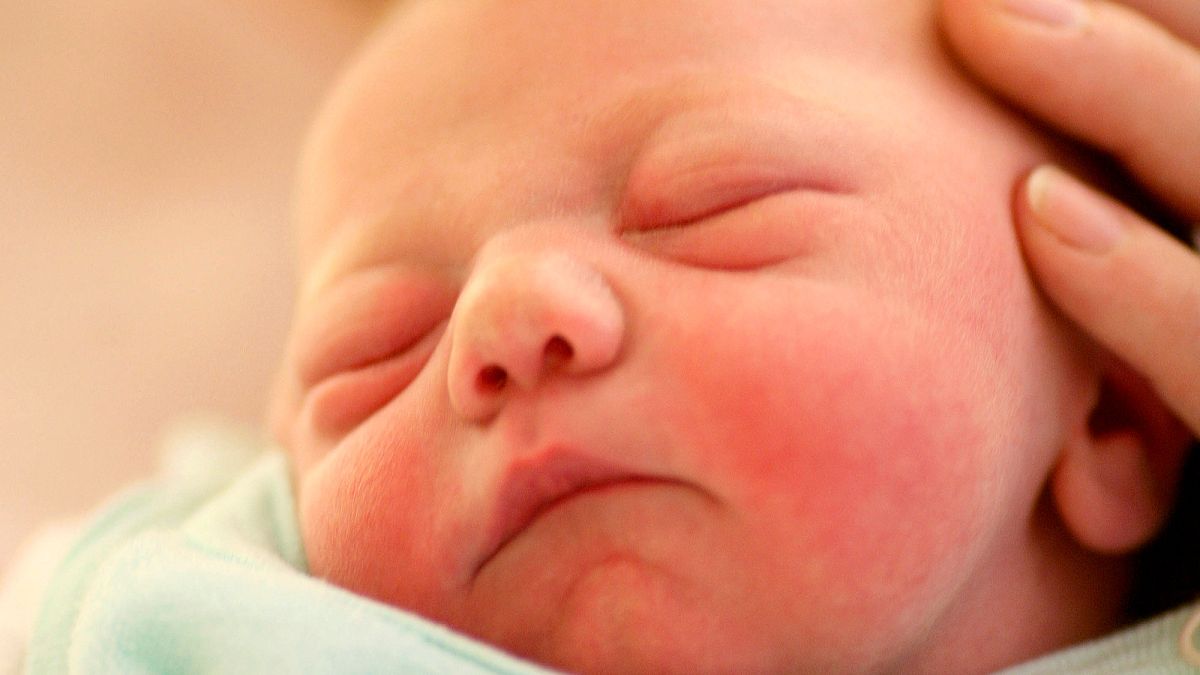Ukraine’s defense procurement problems risk sabotaging war front
Ukraine is trying to clean up its procurement process to better supply its troops and attract foreign funding.
KYIV — Ukrainian Defense Minister Rustem Umerov is facing questions over procurement problems that risk undermining the country’s efforts to supply troops with arms and ammunition.
The Ukrainian parliament wants him to respond to reports that thousands of malfunctioning mortar shells were produced by a local company and sent to the front, and also to answer why a €553 million order for shells was taken away from the main defense procurement agency and will instead by carried out by a Polish intermediary for the State Border Guard Service.
“What is this if not sabotage and rollback of reforms?” Daria Kaleniuk, executive director of the Anti-Corruption Action Center watchdog, said in a Facebook post.
Ukraine has made an enormous effort to revamp and clean up its procurement process — crucial to shake off its reputation as a corrupt country ensnarled in red tape that is scaring off foreign allies willing to invest in the country’s domestic arms industry.
But campaigners say the questions facing Umerov mean that not everything is resolved.
“The ministry had more than a year to reform its defense procurement,” Kaleniuk said. “The procurement agency finally started eliminating bogus intermediaries from defense contracts. Our partners saw hope for change, started giving funds for our defense needs to the agency to buy weapons.”
The defense ministry is fighting back, claiming that the Polish contract was aimed at diversifying supplies. As for the malfunctioning shells, the ministry underlined that any problem ammunition is just a tiny fraction of the country’s overall production.
“The ammunition Ukraine produced was promptly delivered to the front, which is almost 1,500 kilometers long,” the ministry’s press service told POLITICO, although it did add: “There may be individual cases where a particular batch of products has defects during such a large-scale production process.”
Procurement brawl
The defense ministry claimed it aims for maximum transparency in procurement, and has even created two agencies to manage it. One — called the State Rear Operator (DOT) — buys nonlethal supplies and services for the army, while another, the Defense Procurement Agency (DPA), buys arms and ammunition.
But last month, the Ukrainian government approved taking 23 billion hryvnia (€553 million) from the DPA and giving it to the State Border Guard Service to purchase shells for the army through a Polish firm called PHU Lechmar.
Ukrainian MP Yaroslav Zheleznyak accused the Polish firm of previously failing to supply contracted shells. However, the border guards said they have worked with Lechmar for three years and that the NATO-certified firm has fulfilled its obligations.
Lechmar, in a statement to POLITICO, said it has a track record of working with Ukrainian authorities and acts as a liaison between Ukraine and other countries that do not allow the supply of arms to areas of conflict. It called the accusations “false and hurtful.”

“Apart from the apparent image damage, this could harm Ukraine’s cooperation with the rest of the free world in the defense and security sphere. It can also affect delivery timeliness, essential to the defense effort,” Lechmar added.
The DPA insists it is leading the way in cleaning up Ukraine’s procurement problems.
“We agreed on three things with Minister Umerov: the crystal-clear reputation of the agency, direct contracts with producers, and low-risk efficient use of funds. The transformation of money into weapons should be done wisely. I am very consistent in my actions, and I have never been told that I am doing something wrong,” Maryna Bezrukova, the director of the DPA, told POLITICO.
Bezrukova has a solid reputation among Ukraine’s Western partners, who lobbied for her agency’s independence. However, the ministry is reportedly not satisfied with her performance.
Watchdogs blame the ministry for striking the deal with Poland’s Lechmar, as they would prefer that Ukraine not use intermediaries, but rather source weapons directly from producers.
The DPA’s main goal was to eliminate intermediaries and corruption risks in Ukraine’s state defense procurement system.
And it did succeed in imposing multistage inspections and harsh penalties. But that has slowed down procurement at a time when the military is desperate for ammunition and weapons.
“In parallel, work is underway to increase the institutional, personnel, and procedural capacity of the defense procurement agency to organize procurement,” the ministry said.
Mortar shell malfunction
In the fall, while Ukraine’s army was suffering from a severe shortage of shells and mines, the defense ministry had to withdraw 24,000 mortar shells due to reports that they were malfunctioning. The defense ministry claimed the dud shells accounted for only about 1 percent of all the ammunition Ukraine produced in 2024.
“Now the task of the manufacturer who supplied poor-quality products is to fix it. There is such an agreement. We are working on it,” Bezrukova said.
“We need to diversify risks. There cannot be one monopolist who supplies shells. There need to be several, at least two for each critical item. We need to protect ourselves from dependence on one manufacturer and secondly, nothing changes the manufacturer’s responsibility better than competition,” she added.
In response to the mortar shell problems, the ministry imposed more stringent checks and controls over the production process. In addition, Ukraine will search for alternative gunpowder suppliers, as gunpowder may have caused the malfunction.

The dud shells forced authorities to scramble for ammunition.
“We had a problem with supply … there were poor quality products, we had to quickly look for the goods in warehouses and at the production site, all that were available,” Bezrukova said.
Despite those disruptions, she believes that Ukrainian defense producers need to be given priority funding.
Foreign finance
The latest defense procurement scandals will not affect foreign funds Ukraine attracts into its defense sector, the ministry said, arguing that Kyiv’s allies have the necessary information on what’s happening in procurement.
The defense ministry said there are 1.8 billion hryvnia in foreign investments to procure weapons inside Ukraine, with another 1 billion hryvnia confirmed for next year.
The main donors are the United States, the European Union, Denmark and the Netherlands, and they seem to be pleased with how Ukraine is cleaning up its procurement processes.
“There’s great progress. I would say we have extremely positive cooperation,” with the Ukrainian defense ministry,” Carsten Engdal Pedersen, Denmark’s deputy defense attache, told POLITICO.
Defense Minister Umerov will come and explain everything to the parliament, the defense ministry said.
“The date of the minister of defense’s speech will be agreed with the leadership of the parliament. For security reasons, a public announcement of a specific date is not expected,” the ministry said.
What's Your Reaction?


















































